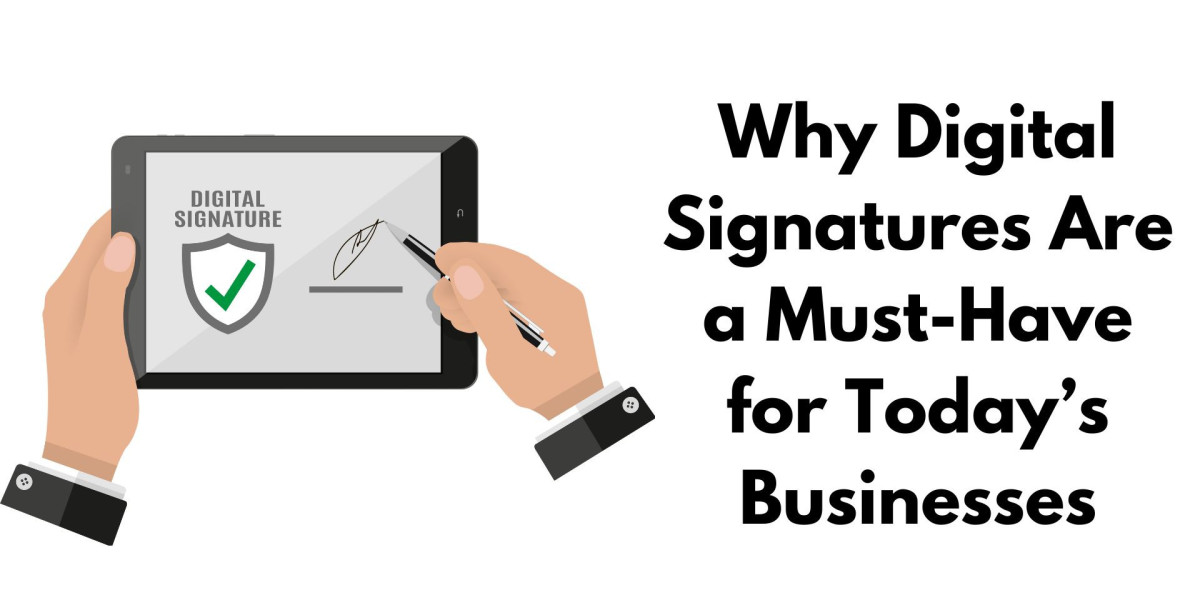Digital signatures have emerged as one of the most crucial tools for businesses of all sizes. Whether it’s signing contracts, verifying identities, or ensuring the integrity of sensitive data, digital signatures are essential for streamlining operations, enhancing security, and ensuring legal compliance. This article explores why digital signatures are a must-have for businesses today.
The Rise of Digital Transformation in Business
The global shift towards digital transformation has dramatically changed the way businesses interact with customers, partners, and vendors. Cloud computing, mobile applications, and online platforms have all become integral to modern business operations. However, these advancements have also created new challenges, particularly in ensuring that business processes remain secure and compliant.
Digital signatures have emerged as a vital tool for addressing these challenges. By allowing businesses to authenticate documents and verify identities electronically, digital signatures facilitate smoother, faster, and more secure transactions. Businesses that fail to adopt digital signature technology risk falling behind competitors who are leveraging it to improve efficiency and security.
Enhanced Security and Fraud Prevention
One of the primary advantages of digital signatures is the enhanced security they provide. Unlike traditional handwritten signatures, which can be forged, digital signatures use advanced encryption technologies to secure documents. This makes it nearly impossible for anyone to alter a signed document without detection, ensuring that the integrity of the agreement is maintained.
Digital signatures work by generating a unique cryptographic hash for the document being signed. This hash is then encrypted with the signer’s private key. The recipient can then use the signer's public key to decrypt the hash, verify the signature, and confirm the integrity of the document. This process provides a high level of security that cannot be replicated by traditional signature methods.
Moreover, digital signatures offer greater protection against identity theft and fraud. By using multi-factor authentication and encryption techniques, digital signatures ensure that only authorized individuals can sign documents. This significantly reduces the risk of unauthorized access and fraudulent activities.
Cost and Time Savings
The traditional process of signing physical documents is time-consuming, expensive, and resource-intensive. Employees often need to print, sign, scan, and mail documents, which not only wastes time but also incurs additional costs related to paper, ink, and postage. In contrast, digital signatures enable businesses to sign documents electronically, eliminating the need for physical paperwork and reducing administrative overhead.
With digital signatures, businesses can sign and send documents within minutes, regardless of geographical location. This not only saves time but also speeds up business transactions, making it easier for companies to close deals, process payments, and finalize contracts faster. The paperwork reduction also leads to lower costs, especially for businesses that handle large volumes of documentation.
Additionally, digital signatures can be integrated into various software systems, such as enterprise resource planning (ERP) or customer relationship management (CRM) platforms, further streamlining the signing process and reducing the need for manual intervention.
How to apply for Digital Signature?
Step 1: Visit Our Website
Start by going to our official website to initiate the process.
Step 2: Enter Your Information
User Type: Select whether you are applying as an individual or representing an organization.
Certificate Type: Choose the type of certificate you need, either for document signing or for both signing and encryption.
Validity: Select the duration for which you would like the certificate to remain valid.
Personal Details: Provide your name, contact number, email address, and physical address.
Agree to Terms: Check the box to confirm that you agree to the terms and conditions.
Submit: After filling in the details, click the submit button.
Step 3: Select Token Preference
Have a Token?: If you already own a USB token, select "No." If you need a new token, select "Yes."
Step 4: Complete Payment
Payment: Provide your payment details and choose your preferred payment method (net banking, credit card, debit card, or UPI).
Step 5: Review and Finalize
Review: Ensure all the entered information is accurate and correct.
Submit: After reviewing, click submit and wait for a confirmation email.
Step 6: Receive Your Digital Signature
Once your application is processed, your digital signature will be sent to you via a USB token drive.
Improved Legal Compliance
In today’s regulatory environment, businesses must comply with a variety of legal and industry standards. These include data protection laws, tax regulations, and sector-specific requirements. Non-compliance can result in hefty fines, legal disputes, and reputational damage. One of the key advantages of digital signatures is their ability to ensure compliance with these legal requirements.
Many countries have enacted laws recognizing the legality of digital signatures. For instance, in India, the Information Technology Act, of 2000, recognizes digital signatures as legally valid and binding for most types of documents, including contracts, agreements, and government filings. Similarly, the European Union's eIDAS Regulation provides a legal framework for digital signatures within the EU.
By using digital signatures, businesses can ensure that their signed documents meet the legal standards required in their jurisdiction. Digital signatures also provide an audit trail, which records the date, time, and identity of the signer, ensuring that businesses can demonstrate compliance with legal requirements in case of a dispute.
Streamlined Workflow and Increased Productivity
Digital signatures contribute to improved workflow and productivity within businesses. Traditional document signing often involves multiple steps, including printing, signing, scanning, and emailing. This process is not only time-consuming but also prone to errors, such as missing signatures or incorrect document versions.
Digital signatures streamline this workflow by allowing documents to be signed and exchanged electronically, eliminating the need for physical copies. The process is simple, efficient, and error-free. Documents can be signed quickly and securely, with all necessary parties receiving immediate access to the signed documents.
Moreover, digital signatures can be integrated with other business systems, such as document management software and contract management tools. This integration ensures that signed documents are automatically stored in the correct system, reducing the chances of misplaced or lost documents. The entire workflow is faster and more efficient, enabling businesses to focus on core activities and reduce administrative burdens.
Environmental Benefits
In addition to their operational benefits, digital signatures also contribute to environmental sustainability. The traditional process of signing documents involves printing large volumes of paper, which requires trees, energy, and water for production. It also results in the disposal of paper after use, contributing to waste.
By using digital signatures, businesses can reduce their reliance on paper, making their operations more environmentally friendly. Digital signatures enable businesses to move towards a paperless model, which not only saves resources but also reduces the carbon footprint associated with paper production, transportation, and disposal. This is an important consideration for businesses that are committed to sustainability and corporate social responsibility.
Client and Partner Trust
In an age where data breaches and fraud are increasingly common, trust is a key factor in business relationships. Clients and partners want to feel confident that the documents they sign are legitimate and that their data is secure. By adopting digital signatures, businesses can demonstrate their commitment to security, privacy, and professionalism.
The use of digital signatures reassures clients and partners that their transactions are secure and that the documents they sign are legally binding. This can help businesses build stronger, more trustworthy relationships with their stakeholders, leading to greater loyalty and long-term success.
Scalability for Growing Businesses
As businesses grow, their operations become more complex, and managing an increasing volume of documents becomes a challenge. Digital signatures are highly scalable and can be easily adopted by businesses of all sizes. Whether you’re a small startup or a large enterprise, digital signatures can accommodate your needs.
For growing businesses, digital signatures can help manage increased paperwork, contracts, and approvals without the need for additional resources. As the business expands, digital signature solutions can be easily integrated with other tools and systems, providing the flexibility to scale operations seamlessly.
Suggested Read – Class 3 Digital Signature Certificate For eTender
Conclusion
Digital signatures are no longer just a convenience—they are a necessity for modern businesses. From enhancing security and preventing fraud to improving workflow efficiency and ensuring legal compliance, digital signatures provide a wide range of benefits that help businesses stay competitive in today’s digital economy.
Adopting digital signature technology is a step towards future-proofing your business, streamlining operations, and enhancing security. In a world where speed, security, and compliance are crucial, digital signatures are the key to ensuring that your business remains agile, secure, and ready to tackle the challenges of the digital age.








